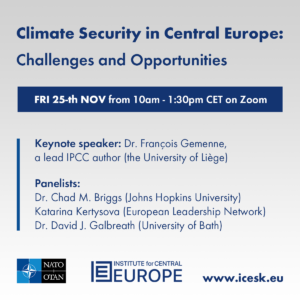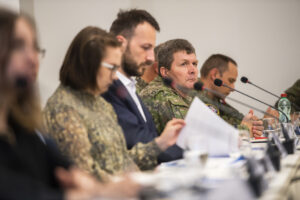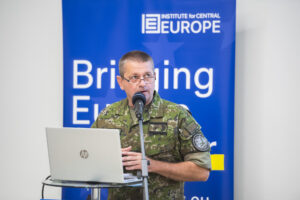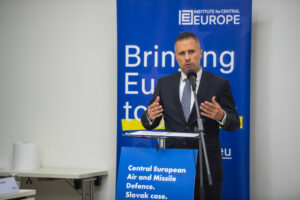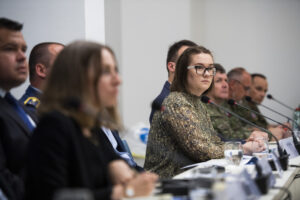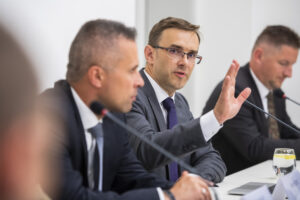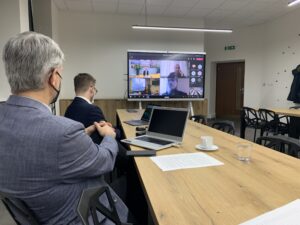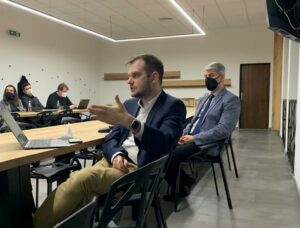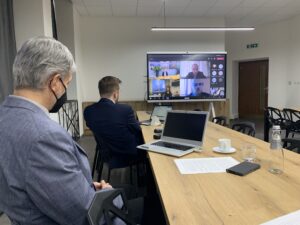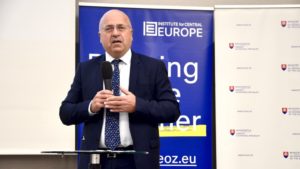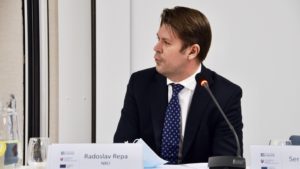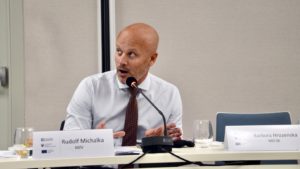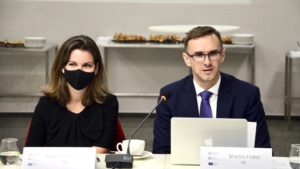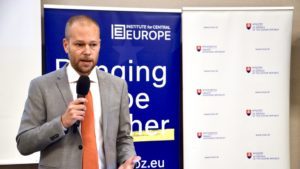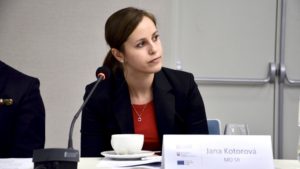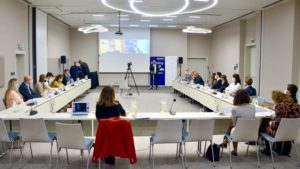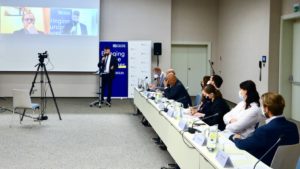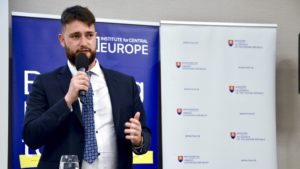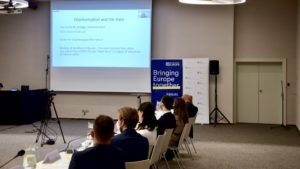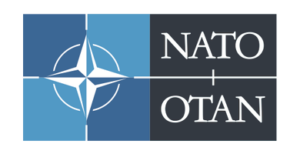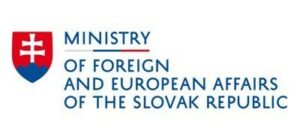On the first of December, the event “Get info on disinformation” took place at the University of Matej Bel in Banská Bystrica (UMB), the aim of which was to raise awareness among Slovak students about controlled and targeted disinformation campaigns, their nature and impact on society. The workshop was organised by the Institute for Central Europe, c.a. in cooperation with UMB thanks to the support of NATO Public Diplomacy Department.
The event featured a panel discussion with Miriam Lexmann, Member of the European Parliament, Marián Majer, State Secretary of the Ministry of Defence of the Slovak Republic, Martin Klus, State Secretary of the Ministry of Foreign and European Affairs, as well as Jozef Michal Mintál – academic from the Department of Security Studies at UMB and Peter Köles, Head of the Strategic Communication Department at the Ministry of Foreign and European Affairs.
In relation to disinformation campaigns, MEP Lexmann stressed in particular the fact that the managers of the largest social networks are aware of the fact that their platforms greatly contribute to the spread of disinformation and fake news. Nevertheless, they tolerate algorithmic presets in a form that encourages the spread of radical and false information.
In this context, State Secretary Marián Majer stressed that disinformation campaigns nowadays no longer represent only a misleading of the public, but a real threat to the democratic character of the states that are most exposed to them. He stressed that building the natural resilience of our fellow citizens is the only way we can combat disinformation, apart from responding quickly to information operations.
According to Martin Klus, State Secretary of the Ministry of Foreign Affairs, we are facing a “serious challenge” in Europe due to disinformation campaigns, and in his opinion “it is high time to take action”. He stressed that there are more than 1 700 disinformation sites and groups operating in the Slovak internet space on Facebook alone. Equally alarming, he said, is the fact that up to 56 percent of Slovaks believe in disinformation, which is the highest in Central and Eastern Europe, according to surveys.
In the second part of the event, students took part in a simulation game called “Fight for the truth”, in which they had the opportunity to practice planning and implementing a disinformation campaign as well as a defence campaign in two opposing teams.
As part of the project, the Institute for Central Europe will also produce a “Hybrid Threat Handbook”, which will be aimed primarily at young people and university students, but also at the wider general public.
